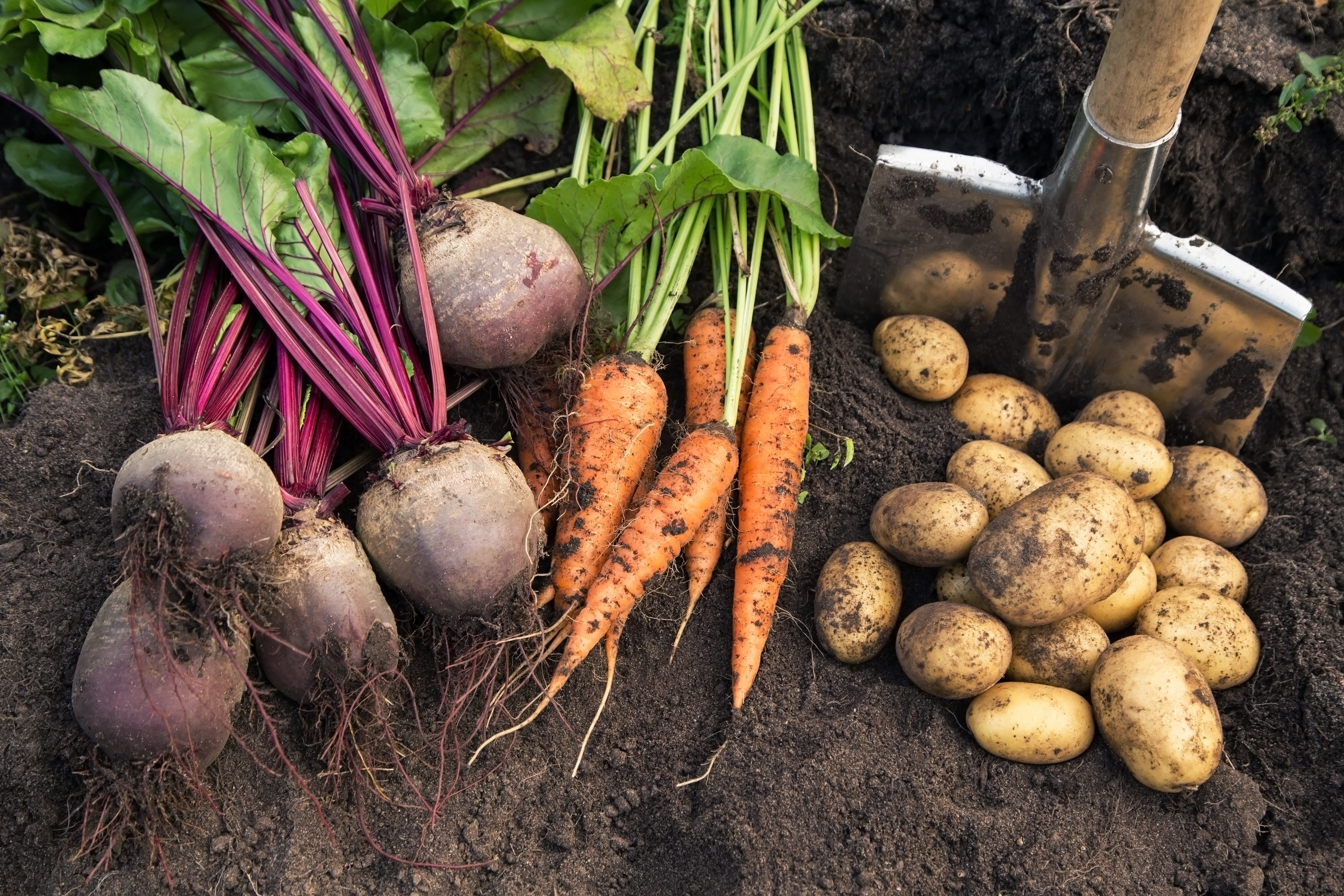
- Soil Association
- Causes and campaigns
- Supporting UK fruit and veg production

Supporting UK fruit and veg production
Supporting UK fruit and veg production for climate, nature, and health
We are facing multiple and intersecting crises in climate, nature and health. To tackle all of these, our food systems need a serious overhaul – including the way we grow, eat, and supply fruit and vegetables.
Horticulture may offer an essential lifeline. Our journey towards healthier and sustainable diets requires a major boost in fruit and vegetable consumption, which will require a surge in local production. As it stands, less than 2% of the UK’s farmland is used for horticulture - that needs to change.
But the way we produce this fruit and veg matters.
The UK horticulture sector is facing huge challenges that hinder the intake of local produce and our ability to grow our own food. In a time when we need more locally-grown produce, half of British fruit and veg producers may go out of business in the next year.
We’re going to delve into the hurdles and the viable solutions for prosperous, sustainable horticulture here in the UK - one that feeds us and the soil, and prioritises climate, nature and health.
We call on the new Government to go further than the previous government’s Blueprint to grow the UK fruit and vegetable sector and deliver a bold cross-departmental horticulture strategy, to ensure a resilient fruit and veg supply. Read more in our short briefing here.
We need to ramp up fruit and veg intake
The UK's consumption rates of fruit and veg are alarmingly below the suggested 5-a-day mark. This deficit becomes more concerning for children; 29% of children aged 5-10 consume less than a single veg portion daily. Furthermore, as inflation rises, the link between income and fruit and vegetable consumption becomes stark.
We need a multifaceted approach, encompassing out-of-home sectors, public procurement strategies and bridging the gap between recommended intake and local produce.
For instance, the School Fruit and Veg scheme, which currently provides primary school children in key stage one with a free piece of fruit or veg every school day, is a great opportunity to support healthy eating and more local, agroecological production.
We’re calling for more local, organic produce to be supplied into the scheme, using a dynamic procurement approach that supports smaller producers.
Put plainly, we need to consume more fruit and veg - and where that fruit and veg comes from, and how it’s grown, matters.
We need to promote local, organic production
Supporting healthier diets and British farmers means producing more of our fruit and veg here in the UK - and the origin and cultivation method of these products play a key role. Addressing climate and nature emergencies while prioritising public health means we need to focus on low-input, agroecological growing practices like organic.
This means reducing chemical inputs. Organic horticulture produces nourishing food that replenishes soil health and supports resilient ecosystems.
A fair food system is achievable. To get there, we need to think big - but we also need to think small and more local.

We need better supply chains
Supply chains must include a broader range of producers - that means small and medium producers, including those catering only to local markets. Dynamic procurement models could shorten these supply chains, with vast potential lying in public procurement. The government must prioritise local and organic produce for our schools, hospitals, offices, care homes and prisons, through programmes like The School Fruit and Veg Scheme.
-
Sign up to our newsletter
Help us campaign for a better food and farming system
Sign up
We need to address the peat dilemma
A big chunk of England's fresh veggies come from lowland peat soils. The East Anglian Fens, for instance, contribute to around 35% of UK-produced vegetables - that’s half of our lettuce and over 75% of our celery.
The fertility of drained peatlands has made them prime candidates for farming. But this drainage, over time, causes soil erosion and turns peatland from major carbon sinks to big carbon emitters.
To get to net zero, peatlands will need restoration, rewetting them so that they’re able to store carbon. This means expanding horticulture in other areas, including in and around cities, and a push toward agroecological and organic farming methods for better soil health.
We need streamlined policies for a fairer food system
The government must take a joined-up approach to horticulture. Cross-departmental collaboration is key to holistically addressing public health, climate, and nature. This would mean departments working together, including Defra, the Department for Health and Social Care, the Department of Education, and the Department for Communities and Local Government.

